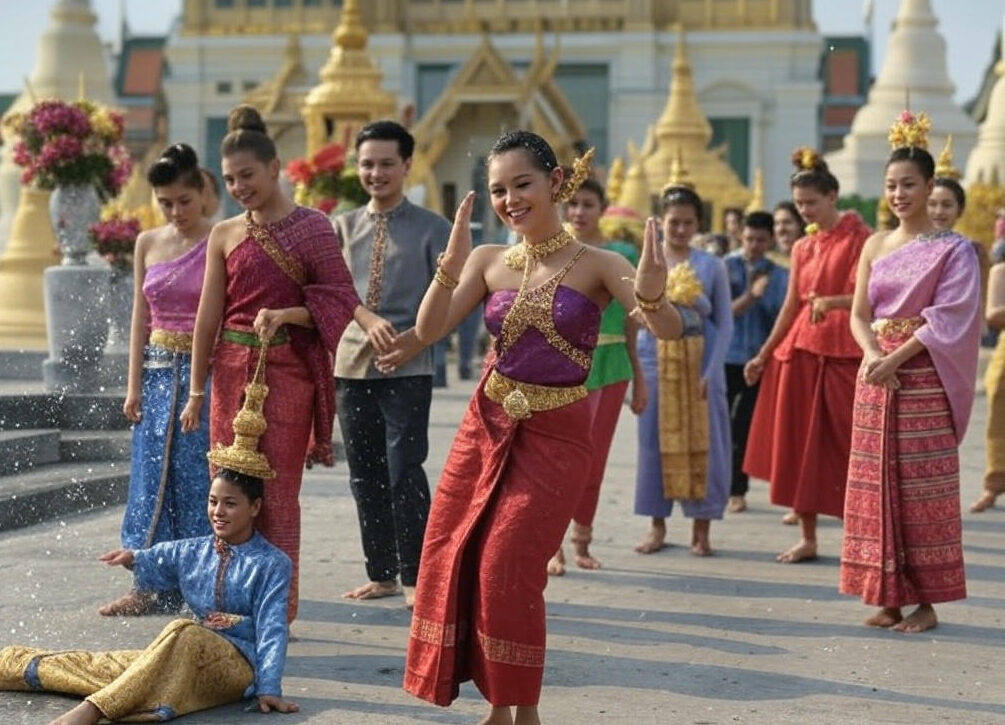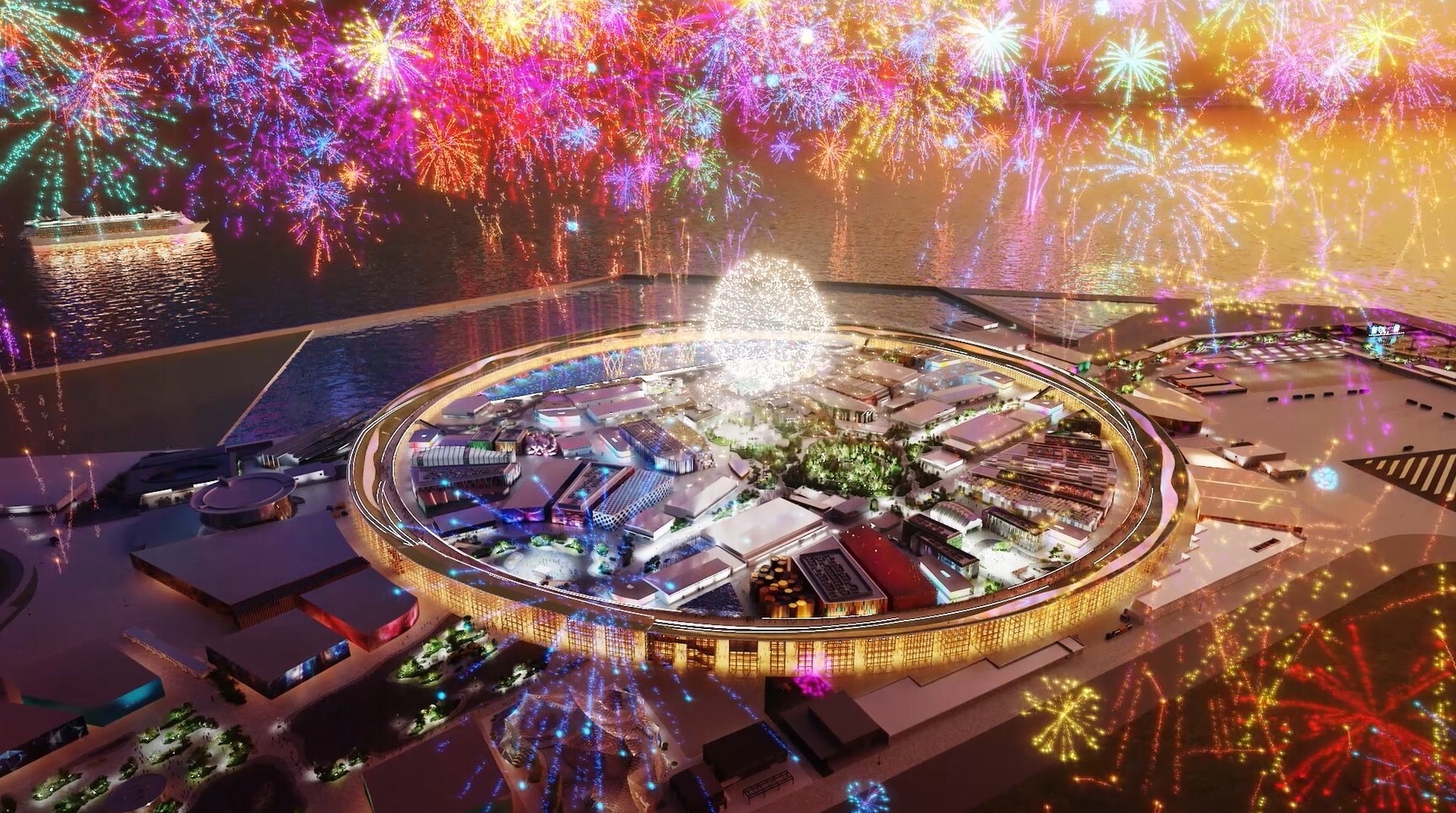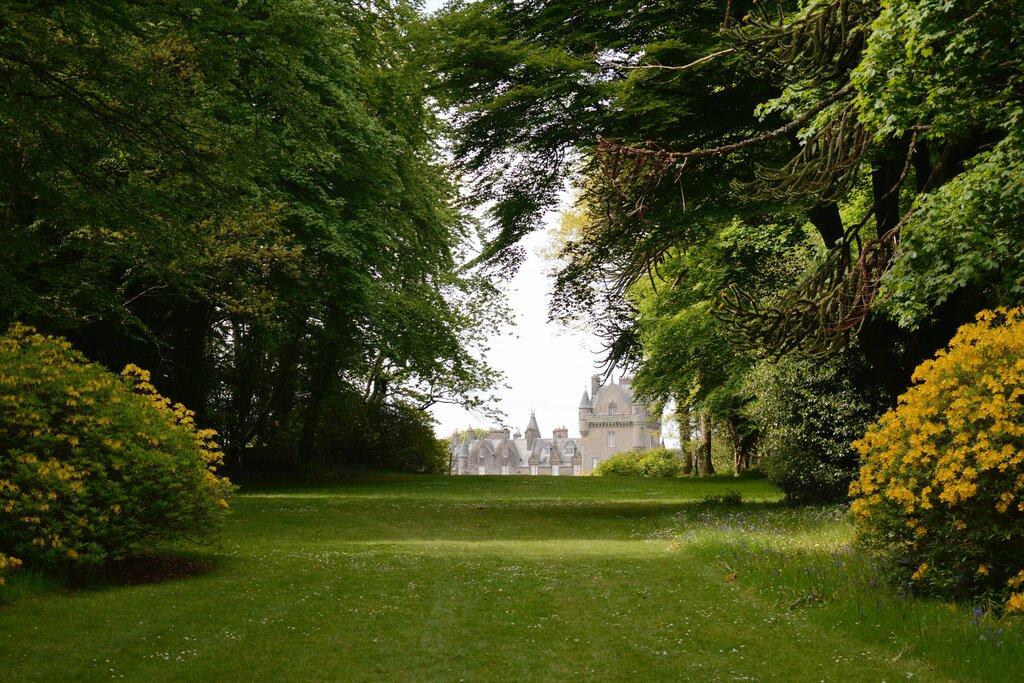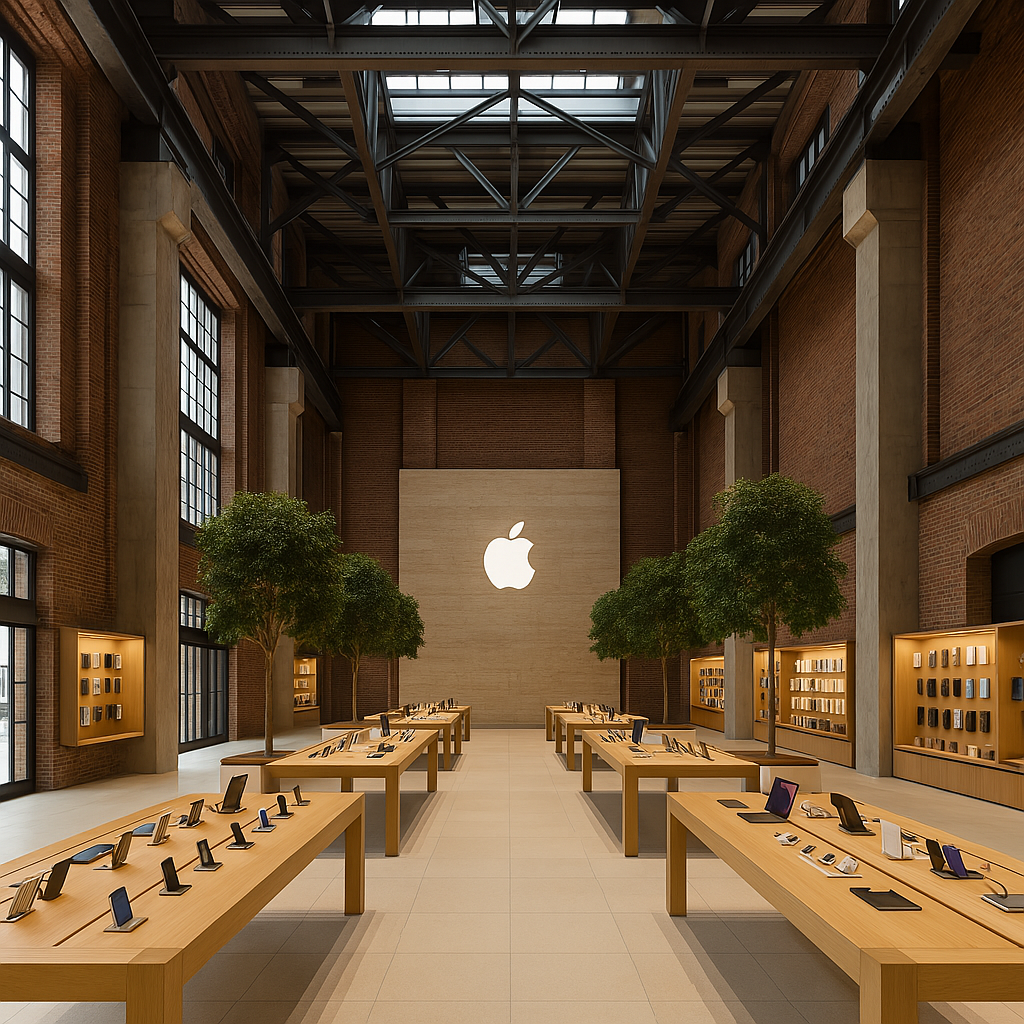Thailand’s annual Songkran Festival, known as the Thai New Year, kicks off today, transforming the nation into a vibrant hub of water-splashing revelry, religious rituals, and cultural festivities from 13 to 15 April. This centuries-old celebration, rooted in ancient traditions, draws millions of Thais and international visitors alike. Its infectious spirit has spread globally, with Hong Kong’s Kowloon City and London in the UK joining in with their own localised festivities to honour Songkran’s joy and blessings.
Songkran: A Cultural Treasure Spanning a Millennium
The term “Songkran” derives from the Sanskrit word “saṃkrānti,” meaning “transition,” marking the sun’s shift from Pisces to Aries and heralding the Thai lunar New Year. Its origins trace back to the 13th century during the Sukhothai Kingdom (1238-1438), when Thailand solidified its Buddhist identity, and Songkran emerged as a pivotal religious and communal event. Initially, the festival centred on homes and temples, where families would sprinkle water on Buddha statues for purification and pay respects to elders, praying for prosperity in the year ahead.
The act of water-splashing blends Buddhist, Brahman, and Thai agrarian traditions. In Buddhism, water symbolises cleansing the soul and washing away sins; in Brahmanism, it is tied to divine creation and protection. Ancient Thai texts, such as the Phra Thammasat, describe Songkran rituals as aligning with cosmic harmony, reflecting humanity’s bond with nature. In the Lanna Kingdom of northern Thailand (13th-18th centuries), the custom of building sand stupas—small pagodas adorned with flags and flowers—took root, symbolising gratitude to the land and spiritual devotion, a practice still prominent in Chiang Mai.
A beloved Thai legend adds mythical charm to Songkran. It tells of a wise young man, Thammabal, who outsmarted the god Phra In (Indra) in a test of intellect. As a forfeit, Phra In surrendered his head, which Thammabal’s seven daughters placed in a cave. Each New Year, they paraded the head and cleansed it with water, a ritual believed to have inspired today’s water-splashing tradition, symbolising reverence for wisdom and divinity. This tale continues to shape Songkran processions, particularly in Thailand’s Isan region.
Over time, Songkran evolved through the Ayutthaya Kingdom (1351-1767) and the Rattanakosin era (1782-present). By the 19th century, Bangkok’s streets saw playful water-throwing with clay pots and bamboo tubes, adding a festive spark. In the mid-20th century, as tourism flourished, Songkran transformed into a world-renowned event, with iconic “water fights” in places like Bangkok’s Khao San Road and Chiang Mai’s moat. While modern elements like beauty contests and music festivals have been added, the festival’s spiritual and familial essence remains intact.
Thailand’s Songkran Spectacle
Songkran is Thailand’s grandest festival, with each region offering a unique flair. In Bangkok, Silom Road and Khao San Road become water-soaked battlegrounds, where locals and tourists wield water guns and buckets in joyous chaos. Chiang Mai dazzles with flower-decked processions and sand stupa-building, as devotees craft intricate structures in temples to honour the Buddha. In Isan, northeastern Thailand, lively “Mor Lam” music and dance infuse celebrations with local energy. Pattaya extends the fun with days-long water fights and fireworks displays.
Beyond the revelry, Songkran carries deep meaning. Families perform the “Rod Nam Dam Hua” ritual, where younger members gently pour scented water over elders’ hands to express gratitude, receiving blessings in return. In temples, devotees offer food and flowers or release birds and fish to gain merit. Smearing white talcum powder on faces, a symbol of protection and good fortune, adds a playful touch to street festivities. Traditional dishes like tom yum, green curry, and mango sticky rice bring families together, mirroring the warmth of a global New Year.
A Global Celebration: Songkran in Hong Kong and the UK
Songkran’s allure has transcended borders, inspiring Thai communities in Hong Kong and the UK to celebrate in their own way. In Hong Kong, Kowloon City—dubbed “Little Thailand” for its abundance of Thai restaurants and residents—hosts a vibrant Songkran event. From 11 to 13 April 2025, the “Kowloon City Food and Songkran Festival” will take place, organised by the Kowloon City Industry and Commerce Association, Kowloon City District Office, and District Council. Jia Bing Da Dao Park will feature a water-splashing zone for symbolic blessings, alongside a Thai food market, Muay Thai performances, traditional dances, and a new Thai lantern display. A fixture since the 2010s, the event drew nearly 10,000 attendees last year and promises even more excitement this time. Local eateries like “Thai People Kitchen” will offer discounts, fostering community spirit.
In the UK, London’s Thai community embraces Songkran with enthusiasm. Temples like Buddhapadipa in Wimbledon will host prayer ceremonies and gentle water-pouring rituals, welcoming Thai expatriates and locals alike. Small-scale street events may pop up in Ealing or Soho, featuring food stalls and cultural performances, though April’s chilly weather limits their scope. Manchester and Birmingham’s Thai restaurants and student groups will also hold parties or cultural nights, spreading Songkran’s cheer across the UK.
Tips for Joining In
In Thailand, visitors can dive into water fights at Bangkok’s Khao San Road or Chiang Mai’s moat, but should wear quick-dry clothing, use waterproof bags, and respect customs (e.g., avoiding splashing monks). In Hong Kong, Kowloon City’s free event welcomes all on 13 April at Jia Bing Da Dao Park—check the organiser’s schedule for details. In the UK, temple-based events dominate, so follow updates from the Thai Embassy or local Thai venues.
A Thai Culture Ministry spokesperson said, “Songkran, with its thousand-year legacy, is the heart of Thai identity. Its message of renewal, unity, and joy resonates worldwide, and we invite everyone to join the celebration.”
From Thailand’s ancient rituals to Kowloon City’s lively gatherings and London’s cultural tributes, Songkran 2025 weaves a global tapestry of tradition and festivity. For more details, visit the Tourism Authority of Thailand’s website or local organiser announcements.
Discover more from “Bridging Hongkongers. Reporting Truth.”
Subscribe to get the latest posts sent to your email.




